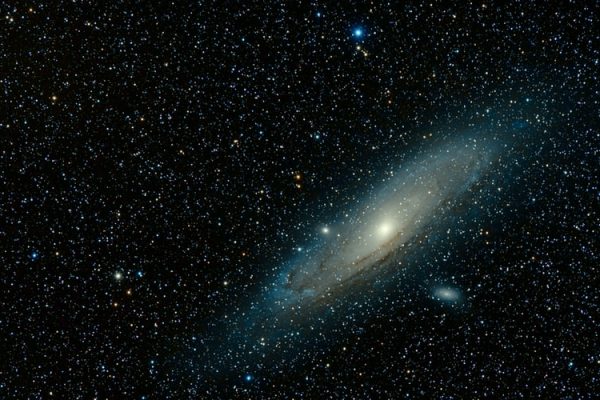“I would like to share a nightmarish picture that keeps recurring in my mind’s eye. I see my grandchildren and their children towards the end of the next century, living in an overheated and polluted planet inherited from us, looking over their shoulders and asking despairingly, ‘Is this what you have left us?'”
“I would like to share a nightmarish picture that keeps recurring in my mind’s eye. I see my grandchildren and their children towards the end of the next century, living in an overheated and polluted planet inherited from us, looking over their shoulders and asking despairingly, ‘Is this what you have left us?'”
This article was written by Fazlun Khalid, the founder and director of the Islamic Foundation for Ecology and Environmental Sciences. You can find the original article on IFEES here.
The Legacy We Leave Behind
To begin with I would like to share a nightmarish picture that keeps recurring in my mind’s eye. I see my grandchildren and their children towards the end of the next century, living in an overheated and polluted planet inherited from us, looking over their shoulders and asking despairingly, “Is this what you have left us?”
Our complacency notwithstanding what is happening now to planet Earth and all life on it differs from anything that has happened before in the history of the human race in scale and concept in possibly five major ways.
Firstly the debacle we are facing now is an unnatural disaster unnaturally caused. Secondly, the now-familiar litany of deforestation, desertification, acid rain, polluted oceans and rivers, ozone layer depletion, greenhouse effect, and the social causes associated with these problems, may seem like a series of events but is, in reality, one single event. Thirdly, this is a disaster of global proportions affecting everybody and everything. It is an extremely painful way of learning the irrelevance of national boundaries. My fourth point is that we are not mere spectators but active participants in this matter. This is a problem we the human species have collectively created. My fifth and final point is that the disease is terminal – that is, it will be unless drastic measures are not taken quickly.
We may think we have retreated from the annihilation of nuclear war but the greenhouse gases we generate could overheat the planet and take us through the dinosaur experience to extinction. The conceptual construct the modern world functions within is decidedly anti-environment. Today’s politics and policies are about increasing standards of living and there is only one source from which we can extract wealth to enable us to do this and that is the earth. Exploiting it takes precedence over protecting it. Using gross national products and rates of economic growth as measures of progress is the most obvious manifestation of this.
Something For Nothing
Our environmental problems arise from an exponential growth model which implicates politicians, economists, scientists, technocrats, and by default the rest of us. The founder of The Club of Rome, Aurelio Peccei [1] says that there has been a large-scale overshoot in the way:
“…the human population and economy extract resources from the earth and emit pollution and wastes to the environment. Many of these rates of extraction and emission have grown to be unsupportable. The environment cannot sustain them. Human society has overshot its limits, for the same reason that other overshoots occur. Changes are too fast. Signals are late, incomplete, distorted, ignored, or denied. Momentum is great, responses are slow.”
There is no longer any doubt that exponential growth is the driving force causing the global economy to breach the physical limits of the earth [2]. But these ideas are not new and interestingly were first postulated nearly a century ago long before environmentalism was even thought of as an issue.
The scientist and historian, Henry Adams, propounded a theory in the early part of this century which suggested that the acceleration of technological change was forcing the acceleration of history. He concluded that this was caused by exponential growth and he forecast [3] dire consequences should we persist in following the industrial growth model.
“At the accelerated rate of progression since 1600, it will not need another century to turn though upside down. Law in that case would disappear…and give place to force. Morality would become police. Explosives would reach cosmic violence. Disintegration would overcome integration.”
A closer examination of this phenomenon of exponential growth by way of an ‘Islamic analysis’ will, I believe, show us the causes which create the disequilibrium and which are uniquely visible from this perspective. In my view, there are two primary interrelated causes, one quantitative, which has to do with our relationship with money, more specifically, how we conceive and create it, and the other qualitative which defines our relationship with the rest of creation.
The entire history and ethos surrounding money with the institutions and edifices created to enshrine it and its relationship to the ecological crisis, is apart from a tiny minority of people, wholly ignored by Western economic analysts and historians. If one penny (the denomination is unimportant – what this is intended to convey is a very small amount) was invested 2000 years ago at 4% compound interest, it would have bought one ball of gold the weight of the earth in 1750 and over 8000 balls of gold of the same weight in 1900 [4]; at 5% compound interest the same penny would have bought this ball of gold by the turn of the 15th century and over 2000 billion balls of gold the same weight as the earth by 1990!
Even one percentage point can make an enormous difference and it now becomes clear why the Qur’an condemns usury (riba) so vigorously:
“O believers, fear your God; and give up the usury that is outstanding, if you are believers. But if you do not, then take notice that God shall war against you with His Messenger.” (Al Baqara: 278,279)
As a species, we have already devoured the earth a few times over, but there is another aspect to modern money that we overlook and that is the creation of credit. Credit creation, though a standard and daily practice like the charging of interest, is an aspect of banking little understood by the general public. What the banks are allowed to do legally by the state is to create credit, ie. conjure money out of thin air. John Kenneth Galbraith, the doyen of American economists, said of this practice, “The process by which banks create money is so simple that the mind is repelled” [5].
Riba has a wider definition than that given to usury or interest. If charging interest on ‘money’ is unlawful gain then creating ‘money’ out of nothing is even more so. Exponentially created credit is nurtured and multiplied by interest which grows exponentially. What is regarded as normal today could be described as a gigantic confidence trick. The money in circulation today is ‘virtual’ nothing. It does not represent anything but entries in bank ledgers, balance sheets, and hard disks.
It cannot be emphasized enough that this ‘wealth’ which helps us to sustain the fiction of standards of living, and drives us in pursuit of this mirage we call the quality of life, does not exist in reality but only in fantasy – it could be called a kind of fiscal psychosis. But this infinite amount of non-thing is deployed against the finite resources of God’s creation. It is not difficult for anyone to conclude from this that if the human race carries on like this the earth will soon be reduced to an empty desert and dead ocean.
We cannot go on creating balls of gold the weight of the earth forever. What we call ‘progress’ is an ever-dwindling fuse to oblivion – a self-inflicted sabotage.
Sustainability – Having Your Cake & Eating It
Any development, sustainable or otherwise, takes place with unsustainable credit. The concept of sustainable development itself, although seriously flawed, has been around for some time now, but there has been little success in filtering it through to the consciousness of policymakers. The ideas of sustainability which pose more questions than it answers is defined as follows [6]:
“Sustainable development is used in this strategy to mean: development which increasingly meets human needs, without depleting the matter and energy of the ecosystem upon which development is founded. An economy which develops sustainably would be designed to perform at a level which would allow the underlying ecosystem to function and renew itself ceaselessly.”
Not only is ‘need’ undefined but there is also an a priori assumption that people everywhere are ‘in need’. To talk about ‘increasingly’ meeting human need and at the same doing it ‘without depleting or damaging the ecosystem’ is naive and misleading. Who defines need? Does junk television beamed down by satellite on simple rural communities in remote corners of the globe fall within this category?
Leaving aside the moral arguments, importing this technology makes big holes in a poor country’s foreign reserves. How do we resolve the crisis created by high-consumer nations? Industrial countries account for only 20% of the world’s population and yet they consume 86% of the planet’s aluminum, 81% of its paper, 80% of its iron and steel, and 76% of its timber [7]. “Standards of Living” must be maintained at all costs.
The idea of negative growth as a means of balancing out is met with incredulity and astonishment by the fortunate minority. Does sustainability apply only to the ‘needy’? How are the predatorial high-consumer nations to be stopped from their relentless “depletion of the matter and energy of the ecosystem”? How are the logging companies and the mining corporations to be stopped from destroying lifestyles and degrading large chunks of the earth? How do we deal with non-renewable resources?
Why is this wealth, the primary beneficiaries of which should be the people on whose land they are found, abandoned to the mercy of contractors, transnational corporations, market forces, stock exchanges, commodity dealers, and cartels? Is it because their credit rating is that high they can draw ‘nothing money’ out of the banks and then set about pillaging the real wealth of the people and finally return the money to the banks with interest?
How We See Ourselves
Until quite recently in history the human species, in spite of all its faults, had no reason to suppose that it was not part of a divinely or naturally ordered pattern of existence. As is well known a revolution in thought took place in the 17th Century, triggered by the work of Rene Descartes, the French philosopher and mathematician, which drastically changed this worldview.
Descartes by introducing another model of looking at the world gave unintentional impetus to burgeoning secularism which has today marginalized religion. The fundamental secular principle is enshrined in the well-known cartesian dictum – cogito ergo sum – I think therefore I am. Descartes propounded a dualism [8] which separated mind and matter. He saw the universe as a machine, and the earth and all living things as its component parts. Descartes’ advocacy of the purity and superiority of the scientific method above everything else and his declaration that human beings may render themselves “Lords and possessors of nature” was a direct challenge to the God-centred universe of his time. Belief systems were thrust aside by an aggressive, expansionist secularism, which has culminated in its evolution into the totalitarian, ideological framework of today’s ‘global village’.
Thus it was that the universal acceptance of Riba and the change in man’s perception of himself in the world set in motion the all-pervasive processes we experience today. It may be said that our global civilization is driven by the values of the predator. We have undermined the foundations that maintain the creational balance.
The Islamic Prism
Islam offers an alternative mode of existence. Its primary meaning is to submit to the Lord of the Universe (Rabb-al-’alameen) which is opposite to the cartesian worldview of man’s dominion over the rest of creation. The universe remains in balance because all of it submits to the Creator. Man is the only being on this earth that can reason and therefore has the capacity to dominate and exploit God’s creation or act as its guardian and protector.
A return to some form of equilibrium requires of us an understanding of our relationship with the divine order and these are four major principles in Islam that we may draw from to help us deal with the present crisis. They are: Tawhid which expresses the unifying nature of creation and the inter-relatedness of all created things; fitra which is the originating process of creation out of which God originated the human form; mizan being the balance principle of creation, which we are exhorted not to transgress, and khilafat our station as God’s representative on Earth and its custodian.
These foundational truths should assist Muslims in re-evaluating their role in light of the environmental catastrophes that confront us and cooperating with others in the endeavor to leave a tolerably habitable planet for future generations.
References
1. Meadows & Others; Beyond the Limits; Earthscan, London, 1992. See Overshoot.
2. Ibid; see The Driving Force: Exponential Growth.
3. Calder & Amir Sadeghi (eds); Future of a Troubled World; Heineman, London, 1983. See essay by Gerard on Piel on the Acceleration of History.
4. Margrit Kennedy; Interest & Inflation-free Money; Permaculture Institute Publications,; Steyerberg, Germany; 1988. See pages 10 to 13.
5. Anthony Sampson; The Money Lenders; Coronet, London; 1988. See page 29, introduction to Chapter two, Who Keeps the World?
6. Caring for the Earth – A Strategy for Sustainable Living; IUCN-UNEP-WWF, Gland, Switzerland & Nairobi Kenya. 1991.
7. Brown & Others; State of the World 1995; Earthscan, World Watch Institute, London; 1995. See essay on Creating a Sustainable Materials Economy. S.E Frost; The Basic Teachings of Great Philosophers; Dolphin Books; New York; 1992.
8. S.E Frost; The Basic Teachings of Great Philosophers; Dolphin Books; New York; 1992.





